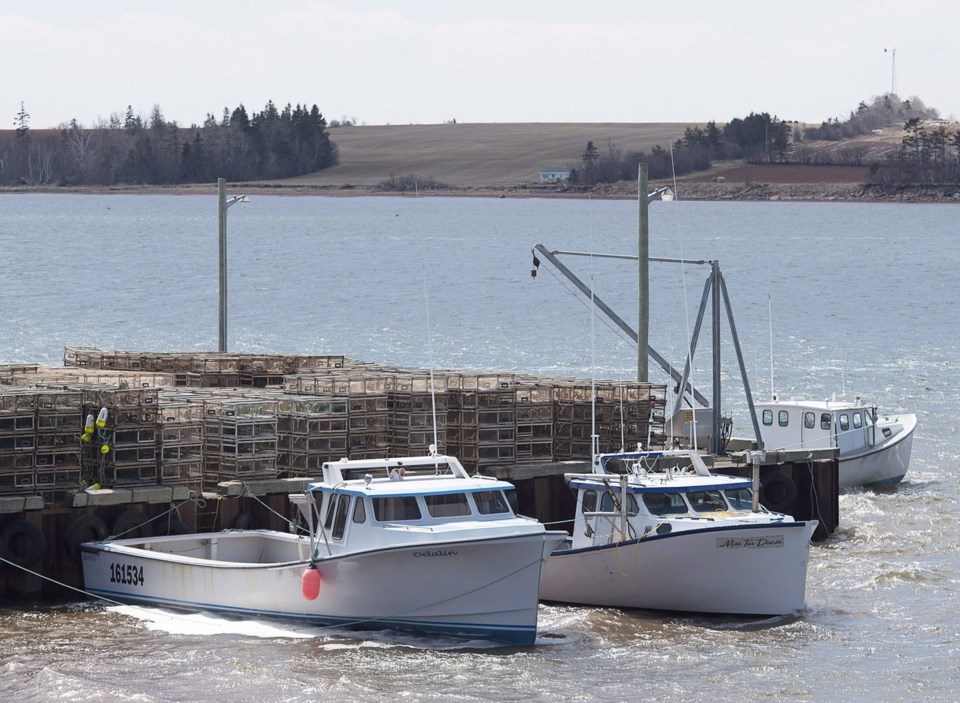MALPEQUE BAY — A First Nation in Prince Edward Island says it plans to take the Canadian government to court after alleging federal fisheries officers seized 300 lobster traps belonging to Indigenous fishers.
Darlene Bernard, chief of Lennox Island First Nation, said the seizures from Malpeque Bay on Sunday were shocking because her community has exercised its treaty right to manage the lobster fishery since 2022 without issue.
Lennox Island's 15 fishers set out 1,500 traps when the federally regulated lobster fishing season began in late April, the same number as the past few seasons.
"So I was really surprised that traps were hauled in, and I will say, to be clear, that this was an illegal action on the side of DFO against our First Nation. We're prepared to defend that, and we'll defend it in court," Bernard said in an interview Monday.
Bernard said the seizures are illegal because they violate a Supreme Court of Canada decision that affirms the right of Indigenous Peoples to earn a moderate livelihood through fishing.
A spokesperson with Fisheries and Oceans Canada did not confirm the seizures, saying only that Ottawa has authorized 1,000 lobster traps for Lennox Island First Nation fishers for the 2025 season.
Spokesperson Dan Bate said in an email the fishers are required to meet licence conditions, and that contravening regulations can be subject to enforcement.
"Fishery officers will continue to patrol to ensure compliance and promote a peaceful and orderly fishery," he said.
Bernard said Lennox Island's fishers provided the federal department with their management and harvesting plan for the self-regulated fishery ahead of the season, just as they did in previous years, which laid out plans for 15 fishers to put out a total of 1,500 traps within the regulated season.
The chief said this “beautiful, little, modest” fishery embodies the Mi’kmaq principle of not taking more than you need, which is called Netukulimk. The success of the First Nation's treaty fishery has directly supported the young families of Lennox Island's 15 lobster fishers, Bernard said.
Bernard said she is aware that DFO sent a document saying they would authorize just 1,000 traps for the season, just as the department had done in previous years when the First Nation put out 1,500.
"They can authorize whatever they want, but at the end of the day, it's a self-regulated fishery. It's a treaty-protected fishery," the chief said.
"We're very open and transparent with DFO, we gave them all the information and work with them. Largely, we have a wonderful relationship with the DFO," she added.
When Bernard got confirmation that lobster traps had been seized Sunday, she said she emailed her contact at Oceans and Fisheries Canada to demand that they be returned.
"We are going to fight this with everything that we have. But we are not going to fight it on the water, because that's totally against who we are as a people. We will see them in court," she said.
This report by The Canadian Press was first published May 20, 2025.
— By Lyndsay Armstrong in Halifax.
The Canadian Press



